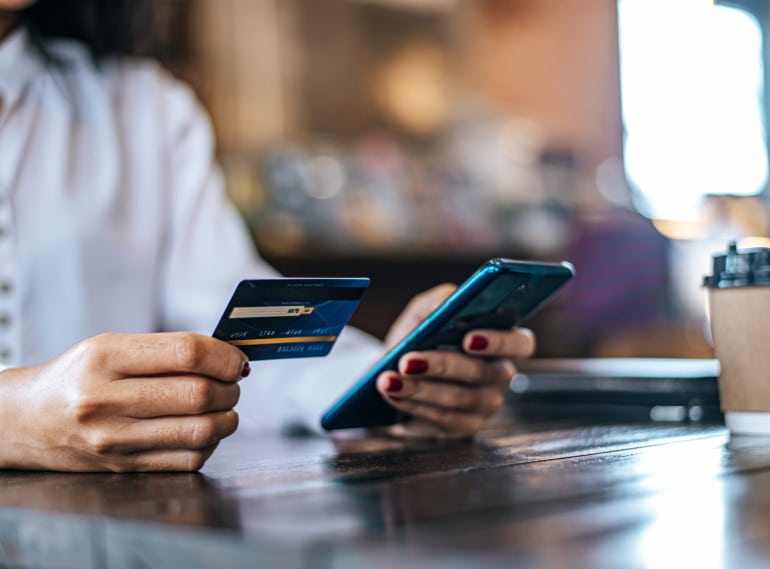“Buy Now, Pay Later” Credit Is In The Consumer Financial Protection Bureau’s Cross-Hairs
- February 22, 2022
This article originally appeared on the Greensheet digital magazine on 12/16/21, and can be read here.
On December 16, 2021, the Consumer Financial Protection Bureau (“CFPB”) issued orders to five companies that offer “buy now, pay later” (“BNPL”) credit. The CFPB ordered Affirm, Afterpay, Klarna, PayPal, and Zip to collect information about the risks and benefits of these loan programs. The consumer credit market is rapidly changing with technology advances, raising concerns about accumulating debt, data harvesting, and regulatory arbitrage.
The CFPB ordered those companies to submit information so it can report to the public about changing industry practices and risks. Similar to the old layaway plans, BNPL lets consumers get the product immediately, but it also puts them into debt right away.
BNPL generally allows a consumer to make purchases in smaller installments, usually four or less, many times with a 25% payment required at checkout. The product usually comes with now interest, and the application process is quick requiring very little information. The five companies ordered to give information claim BNPL is a safer alternative to credit card debt that serves consumers with bad credit histories.
Merchants like BNPL programs because consumers will often spend more on their products, justifying paying up to 6% of the purchase price, similar to credit card interchange fees. Many merchants saw a noticeable increase in BNPL use during the Covid-19 pandemic as drove consumers to electronic payments instead of cash. The CFPB claims that holiday shopping season shows explosive growth in BNPL, including the recent Black Friday and Cyber Monday sales. Many savvy investors noticed this massive growth, leading venture capital and technology companies to get into the game.

The CFPB is required to monitor consumer financial markets, and the law enables the agency to make companies submit information to help monitor consumer financial habits. Once the CFPB collects this information, it will publish its findings. The orders are intended to cast new light on the various consumer credit products and the business practices supporting them.
The CFPB is specifically concerned about:
- Debt Accumulation: The old layaway programs were usually used to make the occasional large purchase, but now consumers are quickly adopting BNPL for everyday buying. This is especially true if the consumer downloads easy-to-use applications or installs a web browser plugin. This is likely to make it hard to track when payments are scheduled if the consumer made multiple purchases on multiple schedules with many different merchants. If there is not enough money in that consumer’s bank account, the bank and BNPL provider may be levied fees and other charges. Consumers can quickly spend more than they expected given the ease of getting these popular loans.
- Regulatory Arbitrage: Consumer protection laws vary state by state and are updated regularly, meaning many BNPL companies may not realize what laws apply or the risks associated with breaking them. Some BNPL products do not provide certain disclosures required by laws in the states where they operate. Although the BNPL application looks similar to a standard online checkout, protections afforded by credit cards may not apply to the BNPL program. For example, many BNPL companies do not provide dispute resolution protections that many credit cards give. Depending on the rules of the state in which they operate, different late fees and policies apply, making it easy to violate those consumer protection laws.
- Data Harvesting: Consumer payment histories, which are given to BNPL lenders, are valuable commodities in today’s data-driven market. Some lenders have created “closed loop” shopping apps with partners, often pushing certain brands and products to younger customers. Lenders will undoubtedly seek other sources of revenue to maintain profitability as mounting competitive forces pressure merchant discounts. The CFPB wants to understand practices for data collection and sales, behavior targeting, and the risks posed to consumers.
BNPL has grown domestically and internationally, making other countries to closely examine those providers. The CFPB is working with international partners such as Australia, Germany, Sweden, and the United Kingdom’s Financial Conduct Authority. Merchants who offer BNPL, and the electronic payments providers who support them, can expect further inquiries as those programs continue to grow.
About the Author
David Haber is a Senior Associate with Global Legal Law Firm. Global Legal Law Firm has years of experience tracking the legal developments in the electronic payments space and helping clients develop strategies for various laws and prevailing interpretations across the United States. We have helped clients with compliance advice, drafting and negotiating business contractual terms and conditions, defending state and federal regulatory actions, and representation in civil litigation matters involving electronic payment transactions and electronic payment companies.
Recommended Posts
-

The Importance of Reviewing NDAs in the Electronic Payments Industry
Non-Disclosure Agreements (NDAs) are crucial legal contracts designed to protect sensitive...
Read More -

How a Severance Agreement Attorney Can Protect Your Rights
Ensuring Fair Compensation and Legal Compliance in Employment Separation Navigating...
Read More -

The Role of General Counsel in Payment Industry Compliance
Overview of the Payment Industry The payment industry has experienced exponential growth and transformation...
Read More